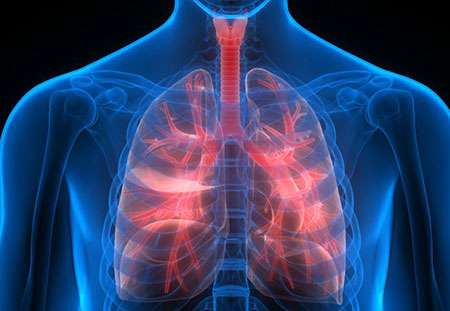Respiratory Disorders

In Ayurveda, respiratory disorders are collectively known as “Swasa Roga” or “Shwasa Roga.” Ayurveda recognizes the significance of the respiratory system in maintaining overall health and vitality. Respiratory disorders are viewed through the lens of dosha imbalances, particularly the involvement of Vata, Kapha, or Pitta doshas, and the impact on the Prana Vayu (vital life force) and the respiratory channels.
Introduction to Respiratory Disorders in Ayurveda:
1. Prana Vayu and Respiratory Function:
– Ayurveda places great importance on Prana Vayu, one of the five subtypes of Vata responsible for the movement of air and energy in the chest and respiratory system. Any imbalance in Prana Vayu can lead to respiratory disturbances.
2. Dosha Imbalances:
– Respiratory disorders are often attributed to dosha imbalances, with Vata, Kapha, or Pitta playing a significant role. For example:
- Vata Imbalance: Can lead to conditions like dry cough, wheezing, and difficulty breathing.
- Kapha Imbalance: May manifest as conditions like congestion, excessive mucus production, and heaviness in the chest.
- Pitta Imbalance: Can contribute to inflammatory conditions, irritation, and heat-related symptoms in the respiratory tract.
3. Seasonal Influence:
– Ayurveda recognizes the impact of seasonal changes on respiratory health. For instance, the transition from winter to spring, characterized by an increase in Kapha dosha, may contribute to respiratory issues.
4. Ama (Toxins) Accumulation:
– The accumulation of ama, or toxins, in the body can contribute to respiratory disorders. Ama may result from impaired digestion and metabolic processes.
Common Respiratory Disorders in Ayurveda:
1. Pratishyaya (Common Cold):
– Characterized by nasal congestion, runny nose, sneezing, and throat irritation. It is often associated with an imbalance in Kapha dosha.
2. Shwasa (Dyspnea):
– Refers to difficulty breathing or shortness of breath. It may be associated with imbalances in Vata dosha affecting Prana Vayu.
3. Kasa (Cough):
– Coughs are classified based on the dosha involved. Vata-type cough is dry and hacking, Pitta-type is associated with heat and may be accompanied by yellowish sputum, and Kapha-type is characterized by mucus and congestion.
4. Tamaka Shwasa (Bronchial Asthma):
– Chronic respiratory condition involving recurrent episodes of breathlessness, wheezing, and coughing. It is often associated with an aggravated Vata dosha.
Ayurvedic Management of Respiratory Disorders:
1. Balancing Doshas:
– Treatment strategies involve balancing the doshas, restoring harmony to Vata, Pitta, and Kapha.
2. Herbal Remedies:
– Ayurvedic herbs with respiratory benefits may be prescribed, such as Tulsi (Holy Basil), Vasaka (Adhatoda vasica), and Yashtimadhu (Licorice).
3. Dietary Recommendations:
– Adopting a diet that pacifies the dosha imbalances associated with the specific respiratory disorder. For example, a Kapha-pacifying diet for conditions involving excess mucus.
4. Lifestyle Adjustments:
– Incorporating Pranayama (breathing exercises) to enhance Prana Vayu, and maintaining a regular daily routine.
5. Nasya (Nasal Therapy):
– Administration of medicated oils or herbal preparations through the nostrils to cleanse and nourish the respiratory passages.6. Steam Inhalation:
– Steam inhalation with beneficial herbs can help relieve congestion and improve respiratory function.7. Panchakarma Therapies:
– Detoxification therapies like Vamana (therapeutic vomiting) or Nasya may be recommended to eliminate excess doshas and toxins.It’s important to note that Ayurvedic management is personalized based on the individual’s constitution (Prakriti), current imbalances (Vikriti), and the specific respiratory condition. Individuals with respiratory disorders should consult with us for a thorough assessment and tailored treatment plan.
We have described following diseases in detail.
Common Cold & Cough
Frequently occurring cold and cough. Long duration of cold or cough. With or without fever
Asthma
Chronic or acute Asthma. Breathlessness during sleep or during walk.
Tuberculosis
Tuberculosis Ayurvedic Perception and Management.
